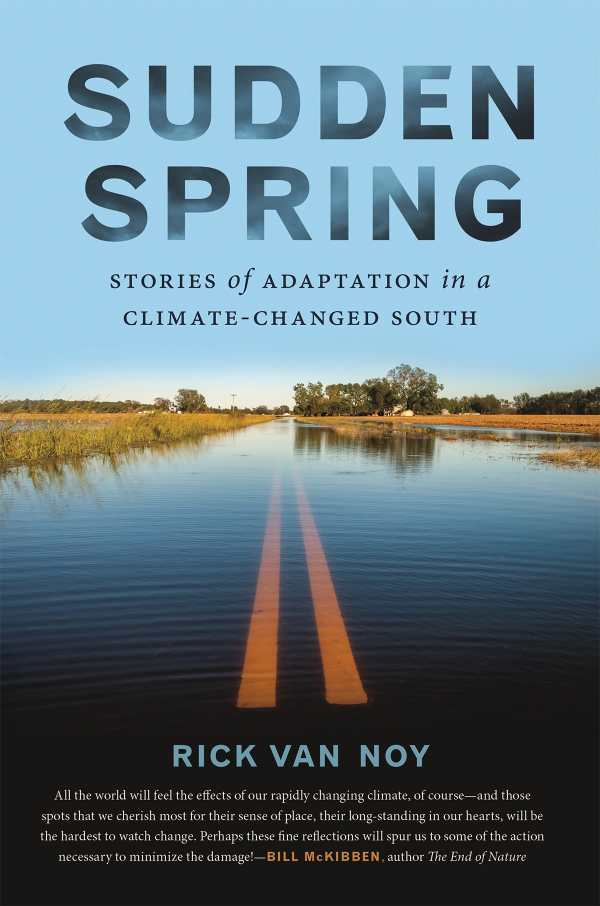Sudden Spring
Stories of Adaptation in a Climate-Changed South
Part of what makes Sudden Spring so compelling is that Rick Van Noy is not a scientist who studies climate change; rather, he writes from the perspective of a curious, concerned citizen who wants to understand its impact. With a journalist’s ability to uncover good stories, Van Noy drives from one southern locale to another, witnessing himself what rising sea levels and storms have wrought and interviewing local officials and residents to gain firsthand knowledge. This on-the-ground research lends an exceptional intimacy to the book, bringing the reader close to some of the most fragile portions of the country.
Many of the place names, including Charleston, Key West, New Orleans, and Houston, are sure to be familiar, but even more striking is the similarity they all share in their need to adapt to a changing environment. Through interviews and personal observations, Van Noy weaves a foreboding story about what is sure to occur. Still, there’s a sense of hope that humanity will overcome the apparently inevitable catastrophic disasters.
As he considers what he learned during his journey, Van Noy observes, “If we can recognize our role in creating the change, we can come around to our part in the healing, not just as individuals but as citizens of a much larger community.”
The book depoliticizes climate change, considering instead what communities are doing to cope with drastically changing conditions. It still acknowledges the political debate, but larger issues of resilience, adaptation, and survival are at the heart of Sudden Spring, an eloquent narrative about what has become the most important challenge of our time.
Reviewed by
Barry Silverstein
Disclosure: This article is not an endorsement, but a review. The publisher of this book provided free copies of the book to have their book reviewed by a professional reviewer. No fee was paid by the publisher for this review. Foreword Reviews only recommends books that we love. Foreword Magazine, Inc. is disclosing this in accordance with the Federal Trade Commission’s 16 CFR, Part 255.


